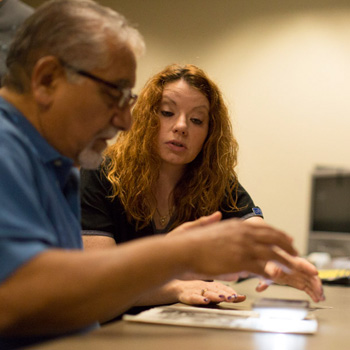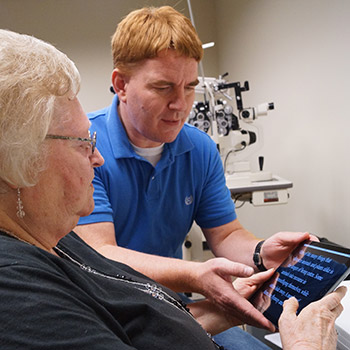
Well-Being and Mental Health Factors among Informal Caregivers of Individuals with Visual Impairments
Callie Victor, PhD, OTR/L, CLA; Matthew Haase, MS, OTR/L, ATC; Michael Bown; Lindsey Bates, OTR; Michael Centra, OTR/L; Jaclyn Sachleben; Elizabeth Tyson; Michelle Gamber, DrPH; Suleiman Alibhai
View Article

Stand Magnifier Optical Strategies
Gregg Baldwin, OD
View Article

The Effectiveness of the Apple iPad as a Reading Tool for Individuals with Low Vision
Aaron Johnson, PhD; Christina Nadon; Elliott Morrice; Julie-Andrée Marinier, OD MSc; Olga Overbury, PhD; Walter Wittich, PhD, FAAO, CLVT
Download Article